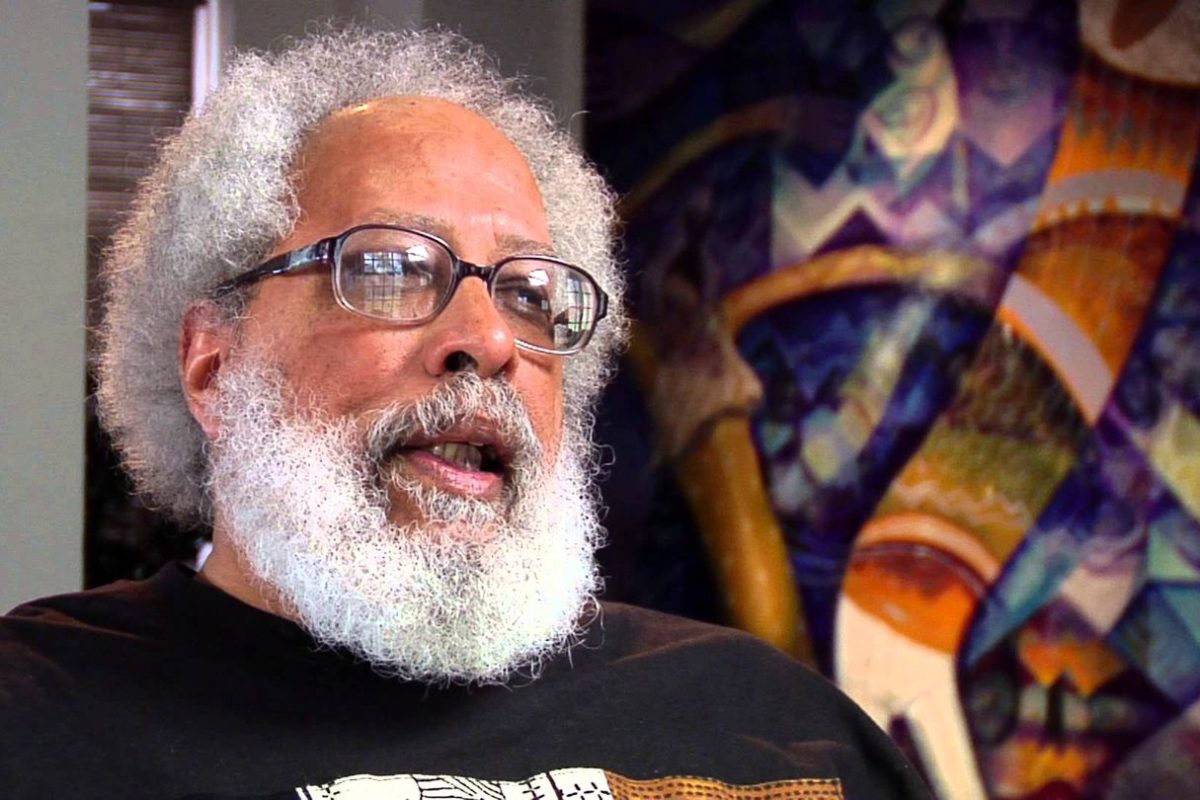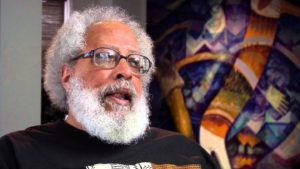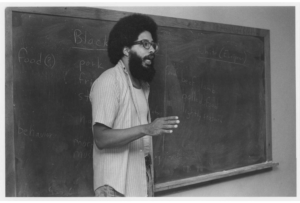
 Chancellor Kumble Subbaswamy recently announced the establishment of an endowed graduate fellowship in honor of John H. Bracey, Jr., professor of Afro-American studies at UMass Amherst since 1972. The fellowship was announced in conjunction with the campus’s Black Presence Initiative, an effort to explore and document the experiences of Black students at UMass Amherst. The fund is now active.
Chancellor Kumble Subbaswamy recently announced the establishment of an endowed graduate fellowship in honor of John H. Bracey, Jr., professor of Afro-American studies at UMass Amherst since 1972. The fellowship was announced in conjunction with the campus’s Black Presence Initiative, an effort to explore and document the experiences of Black students at UMass Amherst. The fund is now active.
“Professor Bracey, a preeminent scholar of Black history and the Black arts movement and a founder of the campus’s W.E.B. Du Bois Afro-American Studies Department, played a leading role in creating the Black Presence Initiative,” says Chancellor Kumble Subbaswamy. “He has led the efforts to record and archive the many impressive and enduring contributions the Black members of our community have made to UMass. It is only fitting that the campus create a permanent acknowledgement of the transformative role he has played on our campus.”
The John H. Bracey, Jr. Fellowship Fund will provide summer fellowship support for doctoral students in the W.E.B. Du Bois Department of Afro-American Studies—which celebrated its 50th anniversary in 2021—who have achieved candidacy and are engaged in research and writing their dissertations. The fellowship is meant to enable students to make significant progress at the early stage of research or the final stages of completing their dissertations.
 Professor John H. Bracey, Jr. is a leading figure in the fields of African American studies and U.S. history. His writing and research focus on African social and cultural history, radical ideologies and movements, and the history of African American women. Some of his current interests focus on the interactions between African Americans and Native Americans, Afro-Latinx, and Jewish Americans.
Professor John H. Bracey, Jr. is a leading figure in the fields of African American studies and U.S. history. His writing and research focus on African social and cultural history, radical ideologies and movements, and the history of African American women. Some of his current interests focus on the interactions between African Americans and Native Americans, Afro-Latinx, and Jewish Americans.
Bracey was born in Chicago, Illinois and grew up in Washington D.C., where his mother taught in the Howard University School of Education. He attended both Howard University and Roosevelt University in Chicago, where he earned his BA in 1964. He performed graduate work both at Roosevelt and at Northwestern University. During a decade in Chicago (1961-71), Bracey was active in the Civil Rights, Black Liberation, and Peace movements as a member of the Congress of Racial Equality (CORE), Chicago Friends of the Student Nonviolent Coordinating Committee (SNCC), Students for a Democratic Society (SDS), and the Revolutionary Action Movement.
In 1972, Bracey came to UMass Amherst as a founding member of the W.E.B. Du Bois Department of Afro-American Studies. He has served twice as department chair. Over the past five decades, Bracey has been, and continues to be, a tireless supporter of Black student initiatives, organizations, and cultural activities on campus. He has initiated programming that contributes to the diverse cultural and educational life of UMass Amherst. As an educator, he has devotedly served as a close and attentive mentor to many undergraduate students and PhD and MA candidates.
Bracey’s significant contributions to the field of Black studies extend far beyond the UMass Amherst campus. He has made primary documents and other key sources of African American history and culture accessible to scholars, teachers, students, and the general public. His writings and editorial projects are prolific. An ardent collaborator, he has worked with prominent thinkers and figures, like Sharon Harley, August Meier, Manisha Sinha, Sonia Sanchez, and Elliott Rudwick. His recent writings display an enormous range of interests and competencies, from an award-winning essay on the musician John Coltrane in the Massachusetts Review (2016) to his contribution to a Furious Flower anthology (2019).
Not long ago, the Association for the Study of African American Life and History (ASALH)—one of many organizations in African American studies where Bracey’s membership and presence are felt—held a plenary tribute to Bracey’s acheivements. He is a lifetime member of ASALH and of the Organization of American Historians, participating in the latter’s Distinguished Lecturers Program. He has received awards from ASALH as well as the National Council of Black Studies and numerous campus and community organizations. In 2013, the College of Wooster granted professor Bracey an honorary Doctor of Humane Letters degree.
